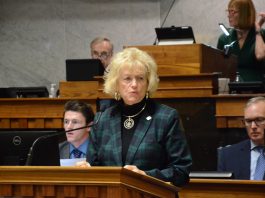Chicago, Omaha, and Rhode Island Programs Recognized as National Models
The U.S. Environmental Protection Agency (EPA) today announced the winners of the 2019 National Environmental Leadership Award in Asthma Management. Each year during Asthma Awareness Month, EPA honors programs delivering excellent environmental asthma management as part of their comprehensive asthma care services to improve the lives of children and families with asthma. The 2019 award recipients are Mobile Care Chicago (Illinois), the Omaha Healthy Kids Alliance (Nebraska), and the Rhode Island Department of Health.
“I am honored to award and congratulate the winners of the 2019 National Environmental Leadership Award in Asthma Management on behalf of EPA,†said EPA Assistant Administrator for Air and Radiation Bill Wehrum. “These outstanding programs are on the front lines of asthma care, improving lives, delivering real solutions, and helping the many Americans who battle asthma. We are proud to recognize leaders in the field who are providing comprehensive, in-home care and education every day, while setting the standard for asthma care and management.â€
Asthma is a major public health issue, affecting nearly 23 million people, including six million children, and disproportionately affecting low-income and minority communities. The economic impact of asthma has been estimated at more than $56 billion annually from direct medical costs and indirect costs, such as missed school and work days. In partnership with other federal agencies and nonprofit organizations, EPA delivers a national, multi-faceted education and outreach initiative to increase public awareness and action to manage environmental asthma triggers as part of comprehensive asthma management.
Through AsthmaCommunityNetwork.org, EPA supports an online network of more than 1,100 community-based asthma programs with powerful, innovative tools and technical assistance to drive best practices, learning, and ongoing improvement of asthma care. EPA is committed to improving the lives of people with asthma by integrating sound science into effective public health programs around the country.



